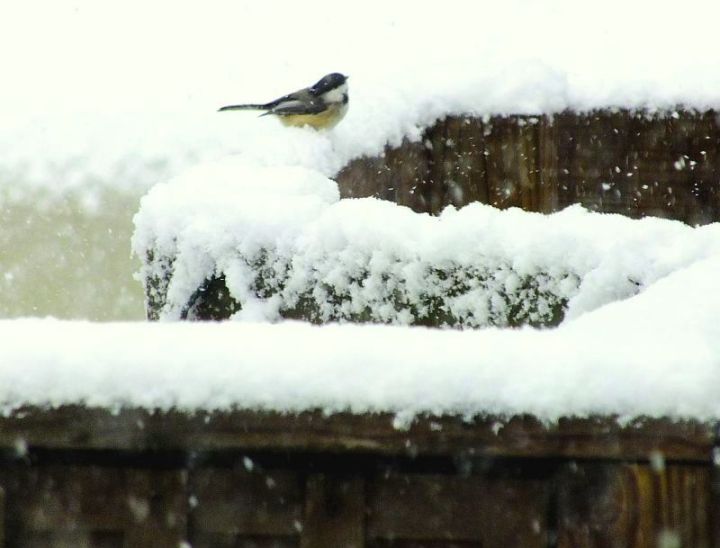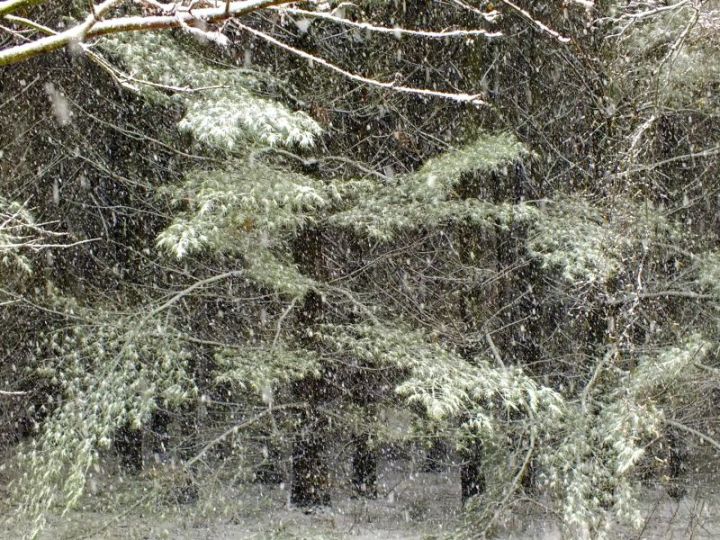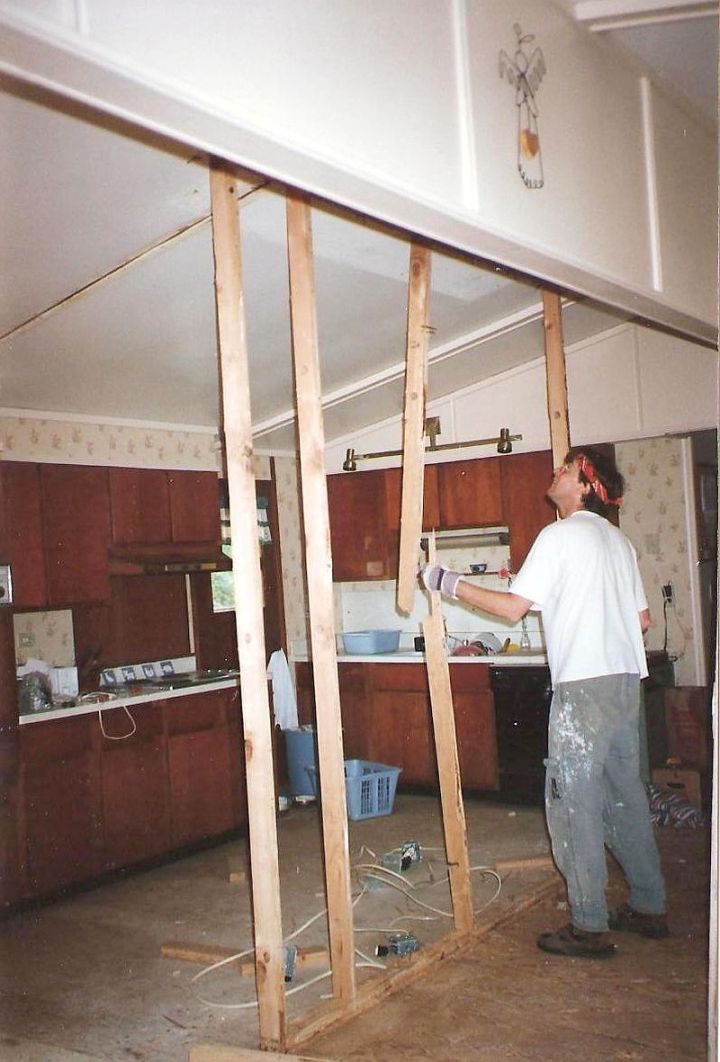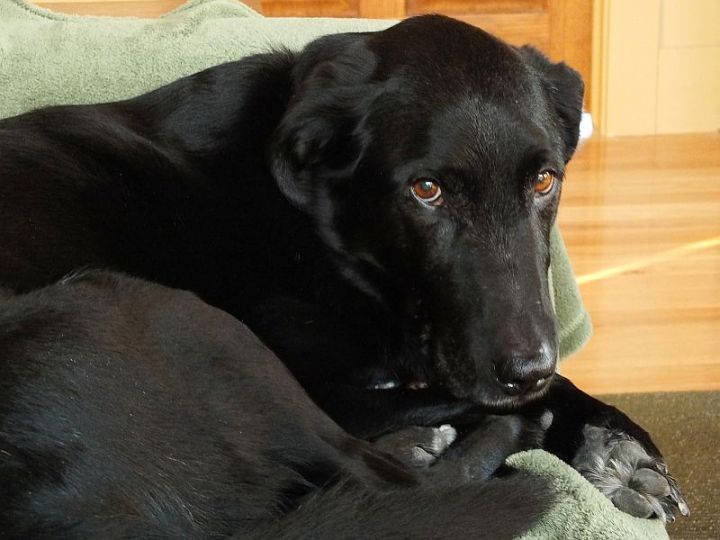 In the past four days, we’ve had a snowstorm, a thunderstorm, temperatures in the upper 50’s and today, another snowstorm. This morning, chickadees have been flying back and forth to the feeders, singing their spring songs, but that’s changed again in the past hour. They seem to have adapted to winter’s return. I wonder if they can tell that tomorrow the temperatures will dip once more below zero, or if this will surprise them?
In the past four days, we’ve had a snowstorm, a thunderstorm, temperatures in the upper 50’s and today, another snowstorm. This morning, chickadees have been flying back and forth to the feeders, singing their spring songs, but that’s changed again in the past hour. They seem to have adapted to winter’s return. I wonder if they can tell that tomorrow the temperatures will dip once more below zero, or if this will surprise them?
 Everything changes: not always in a day, or even a lifetime, and rarely all at once, but as we revolve through life, it seems every cycle brings us back to a place that’s similar but never the same as it was. Companions have left our side and new ones now walk the path beside us; our physical capabilities or our views have altered; the degree of hope we perceive in our hearts and the encouragement offered by the world around us varies.
Everything changes: not always in a day, or even a lifetime, and rarely all at once, but as we revolve through life, it seems every cycle brings us back to a place that’s similar but never the same as it was. Companions have left our side and new ones now walk the path beside us; our physical capabilities or our views have altered; the degree of hope we perceive in our hearts and the encouragement offered by the world around us varies.
 We may be surprised by loss, tragedy, or reversals, changes that cause the geographies describing our relationship to self, others, place, and spirit to evolve or regress, or dramatically alter, and we either adapt or do not, depending upon our finesse and willingness to regain our balance and accept these changes that were unsought and undesired.
We may be surprised by loss, tragedy, or reversals, changes that cause the geographies describing our relationship to self, others, place, and spirit to evolve or regress, or dramatically alter, and we either adapt or do not, depending upon our finesse and willingness to regain our balance and accept these changes that were unsought and undesired.
 But even changes we’ve planned for and worked towards demand our willingness to discard elements of our current situation, boundaries, or relationships that were once rooted in the earth of our existence.
But even changes we’ve planned for and worked towards demand our willingness to discard elements of our current situation, boundaries, or relationships that were once rooted in the earth of our existence.
We devise systems to manage change: education, healthcare, government. We create “news programs” to discuss the changes collectively experienced over 24 hours, and share phone calls, or posts in social media, or text messages to update each other more intimately and frequently regarding changes in our “status.”
 It seems, societally, we’re addicted to insignificant change and hasten its rhythms to keep us engaged in life. Until substantial change threatens our sense of security, the way we “want” things to be, or the direction we desire to move. Then, we resist, argue, deny, or retreat, often to our detriment, though certainly stillness, discernment, and speaking our own truth are valuable companions as we navigate the flow of this ever-changing energy we call life.
It seems, societally, we’re addicted to insignificant change and hasten its rhythms to keep us engaged in life. Until substantial change threatens our sense of security, the way we “want” things to be, or the direction we desire to move. Then, we resist, argue, deny, or retreat, often to our detriment, though certainly stillness, discernment, and speaking our own truth are valuable companions as we navigate the flow of this ever-changing energy we call life.
I’ve been reading another book on the spirituality of change, specifically as it relates to aging. This is a topic that fascinates me and that I’ve been asked to address in presentations to those who care for geriatric patients or to those who, like me, are interested in exploring changes that are specific to aging humans and our physical, emotional, and spiritual health.
Over and over, I’ve encountered the understanding that the happiest individuals are those who have used their intelligence and gifts to the best of their abilities, but who resist grasping too tightly to any outcome, and instead nurture a willingness to let go and to flow with the greater current, looking for unexpected blessing and the potential for creativity in forming one’s response.
 The central change we face as we age is our death, and our health as elders may depend upon the degree to which we embrace our death as friend, foe, inevitability, or a fearful possibility we can avoid through the “magic of medicine.”
The central change we face as we age is our death, and our health as elders may depend upon the degree to which we embrace our death as friend, foe, inevitability, or a fearful possibility we can avoid through the “magic of medicine.”
I know of a woman who is 89 and considering a heart valve replacement. All of her organs are somewhat compromised and the surgery, if successful, will require a lengthy stay in a nursing facility for her convalescence. She has said, “I’m afraid to die.” I hope she is aware that hospice is another choice, and that patients served by hospices often live longer than those who instead choose aggressive medical interventions, but her fear is driving her choice to undergo this surgery. Family members often disagree about such choices and thus another level of chaos and distraction can intrude upon our end-of-life choices and experiences. Answers are elusive and, in the end, each person has to choose and, hopefully, be at peace regarding these choices.
Over and over in my work as a chaplain I met people at these crossroads and tried to be a listening presence as they navigated their way to peace, or battled through final breaths to the change that came anyway and inevitably. Regardless of my inclinations, my job was to support them through theirs. Certainly, a patient who said, “I am afraid to die” indicated an obvious need to dialogue, and in conversations with a chaplain or other trained caregiver, the patient often reached greater peace as his fears, his beliefs, and his sources of strength were opened, explored, validated and employed creatively to face the days ahead.
 Rituals sometimes helped ease deterrents to dying peacefully, but so did the hard work of asking forgiveness, or extending it to another, reviewing a life that proved more light-filled than first admitted, re-connecting the dying to loved ones who had become distant, or to a faith community that affirmed its willingness to become involved.
Rituals sometimes helped ease deterrents to dying peacefully, but so did the hard work of asking forgiveness, or extending it to another, reviewing a life that proved more light-filled than first admitted, re-connecting the dying to loved ones who had become distant, or to a faith community that affirmed its willingness to become involved.
 It taught me to pay attention to my own dying: to choose responses to possible scenarios; to designate my power of attorney, complete a will, and file the legal forms with my physicians and loved ones; to discuss with my husband, relatives, and friends, what treatments and care I would desire at the end of my life, and to clarify how I want my body to be returned to the earth. Such tasks completed, although unforeseen change may cause their revision, I’m better able to turn back towards the amazing mystery and ever-changing dance with my ever-changing life. Whatever it brings, storms or halcyon days of mellow sunshine, I hope I’ll go with the flow.
It taught me to pay attention to my own dying: to choose responses to possible scenarios; to designate my power of attorney, complete a will, and file the legal forms with my physicians and loved ones; to discuss with my husband, relatives, and friends, what treatments and care I would desire at the end of my life, and to clarify how I want my body to be returned to the earth. Such tasks completed, although unforeseen change may cause their revision, I’m better able to turn back towards the amazing mystery and ever-changing dance with my ever-changing life. Whatever it brings, storms or halcyon days of mellow sunshine, I hope I’ll go with the flow.
© Copyright of all visual and written materials on The Daily Round belongs solely to Catherine M. O’Meara, 2011-Present. Unauthorized use is strictly prohibited, without Catherine O’Meara’s written approval. No one is authorized to use Catherine O’Meara’s copyrighted material for material gain without the author’s engagement and written permission. All other visual, written, and linked materials are credited to their authors.






































You must be logged in to post a comment.